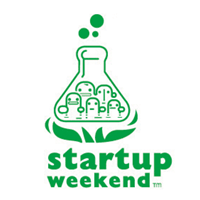 The largest education company in the world (Pearson) has just announced a partnership (including an undisclosed amount of funding) with one of the most interesting new education entrepreneurship initiatives (Startup Weekend EDU). How will Pearson's participation in and funding of Startup Weekend EDU change (further or obstruct) the latter's chances for innovation?
The largest education company in the world (Pearson) has just announced a partnership (including an undisclosed amount of funding) with one of the most interesting new education entrepreneurship initiatives (Startup Weekend EDU). How will Pearson's participation in and funding of Startup Weekend EDU change (further or obstruct) the latter's chances for innovation?
Me, I've been a fan of Startup Weekends for a long long time, well before the organization opted to create a vertical devoted to education. I think the experience of the weekend-long event is very powerful -- whether you are an engineer or a designer or a marketer or a businessperson. Startup Weekend cultivates the entrepreneurial spirit in everyone who participates -- whether you come saying "I want to start my own business" or not. This isn't a business-building workshop or a 54-hour MBA. The Startup Weekend events focus on building teams, on rapidly building prototypes, on customer development. They focus on learning, problem solving, and iterating. Things happen quickly and the startups are lean (unlike, say, a giant corporation).
Hundreds of Startup Weekends have been held in locations all over the world -- that's important because the tech startups in Silicon Valley don't have all the answers for all communities everywhere. We can't just turn to that locale's tech ecosystem to solve all the world's problems.
So when Startup Weekend EDU was announced last year, I was thrilled with the idea of focusing this community-based, project-based learning event to education, in no small part because of this emphasis on the local. After all, despite the efforts for widespread "one size fits all" education "solutions," I really do believe that we need to turn to our communities and our neighborhoods to take about what works and what doesn't. As such, it wasn't just that more Startup Weekend EDUs would mean more education startups or education-technology entrepreneurs. Rather, it did mean an opportunity to bring together community members -- again, engineers, designers, marketers, and educators -- to identify problems and build something to address it. Or -- ya know -- at least spend the weekend thinking through things.
I should add too that that "something" that's worked on over the course of the weekend isn't really just about the end product, pitched to VCs on a Sunday night. It's about the process. The learning process. The community building process. It's about educators and entrepreneurs and engineers in the room together.
So enter Pearson with an undisclosed amount of money and its promise to help mentor entrepreneurs, make introductions to school districts, and help steer the conversation.
Wow.
You can read more of my take over on Fast Company, but let me just say this: if I were an education startup, working on an idea to really disrupt the powers-that-be that control education right now, I'd really have to think twice about participating. Sorry, folks, but I would. No, it's not that someone else can "steal your idea" and build it yourself. (If that's your fear then an event where you pitch your idea to the public isn't for you.) But, I'd still worry about the forces that stop radical (or heck, even substantive) transformation in schools today.
And if I were a teacher, a similar thing holds true: if the forces in power right now have made a mess of things, do you trust those very corporations to innovate us out of this mess? Do you trust them to help advise the conversations that occur and mentor the startups that are build over the course of the weekend?